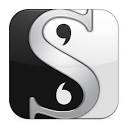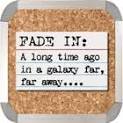A friend of mine recently shared with me that she wanted to write a novel. She had the story, but it was locked in her head. I can acutely empathize with her. In fact back in 2012 I wrote an article about this funny yet painful process. However, what my friend really needed was a short list of the absolute best tools I’ve found that pry that pesky novel out of your gray matter and get it onto the page.
Make your book ideas real with these seven indispensable tools.
1. Save the Cat — Granted this book is geared for writing screenplays, however the structure, and concepts, apply to novel writing. I went to one of their classes in LA a few years ago and it changed my writing dramatically. This book will absolutely improve the way you approach story.
2. The 90 Day Novel — Read this book. Follow exactly what it says. Poof! You have a novel. Hey, this shit’s not easy, but Alan Watt YOU ARE A GENIUS. This book reveals the key to cranking through and taming the monster. Don’t miss Alan’s follow-up book, The 90 Day Rewrite. It’s critical to the process.
3. The 33 Minute Copywriter — Read this great article by a fantastic writer.

4. Scrivener — Word as a word processor is great. Word as a tool for writing novels blows goats. Oh sure if you’re writing a 1 or 10 page paper, it’s great. But you get 300 or more pages into a tome and keeping track of where you are, where you left off, is impossible. (I know that Guy Kawasaki in his book APE does not agree with me on this, but I just can’t keep things straight in Word.) With Scrivener each chapter is broken out so you can click on chapters. The program automatically backs up as you write. There are so many features. Really, I’d go nuts without Scrivener. Get it here.

5. Aeon Timeline — a story is not a story without a timeline. This is the best timeline software I’ve been able to find. Get it here.
 6. Index Cards for iOS — Organizing ideas in note cards is as old as, well, note cards. This app allows you to jot down ideas on virtual note cards and move them around on your screen as if they were real. You can switch over to Outline view so you can see what you’re working on as an outline. Indispensable. Invaluable. Get it here.
6. Index Cards for iOS — Organizing ideas in note cards is as old as, well, note cards. This app allows you to jot down ideas on virtual note cards and move them around on your screen as if they were real. You can switch over to Outline view so you can see what you’re working on as an outline. Indispensable. Invaluable. Get it here.

7. Evernote — If you are a writer, one of the most challenging things you face is keeping track of the bits of wonderfulness that you read about, or think about, or hear about, or wonder about, or fret about, or fear. Keeping track of disparate pieces of information doesn’t happen well unless you’re using something like Evernote. I lived for years without this tool, and I’m sad at how much I’ve lost. All those books and notes that i thought I was keeping track of are where? Somewhere? In a notebook? On a shelf? Gone, baby gone. Install Evernote on your computer. Use the Web Clipper feature on your web browser and pull cleaned-up web pages directly into Evernote. This feature is super helpful. Install Evernote on your phone. Never lose another gem again. Get it here.
Update Feb 5, 2018
More tools have dug their hooks into my creative workflow. While there is no substitute for sitting down and banging out a piece (by that I mean there is no better way to learn from your mistakes) writers can never have too many tools. Some tools talk about structure. Some tools help you understand how to write stuff people will give a crap about. Make sure you have these books under your belt:
 Save the Cat! Writes a Novel: The Last Book on Novel Writing You’ll Ever Need By Jessica Brody
Save the Cat! Writes a Novel: The Last Book on Novel Writing You’ll Ever Need By Jessica Brody
If you are not familiar with the Save the Cat! series of books, you’re at a significant disadvantage. This is the inside track how to apply the formula every movie follows in order to give your novel focus and punch. I highly recommend taking a live STC! class. Ten years on, I’m still reaping the benefits. Get it here.
 The Writer’s Journey: Mythic Structure for Writers by Christopher Vogler
The Writer’s Journey: Mythic Structure for Writers by Christopher Vogler
If you haven’t read this, drop what you are doing right now and go buy it. Seriously. While STC! (above) gives you structure, Vogler digs into the very definition of what makes up the Heroe’s Journey. This is a deep analysis of Joseph Campbell’s The Hero With a Thousand Faces, only infinitely more easy to read. Get it here.
While we’re at it I need to add another book. These are intended for screenwriters, however, the information in them is illuminating for the novelist working to break in.
 Crafty Screenwriting: Writing Movies That Get Made by Alex Epstein
Crafty Screenwriting: Writing Movies That Get Made by Alex Epstein
From the back of the book, and frankly, I couldn’t say it better. “Fresh, provocative, and funny this book answers the questions other books don’t even ask and cheerfully slaughters the sacred cows of “how-to” screenwriting.” Get it here.




April 21, 2016
No Comments
By Scott